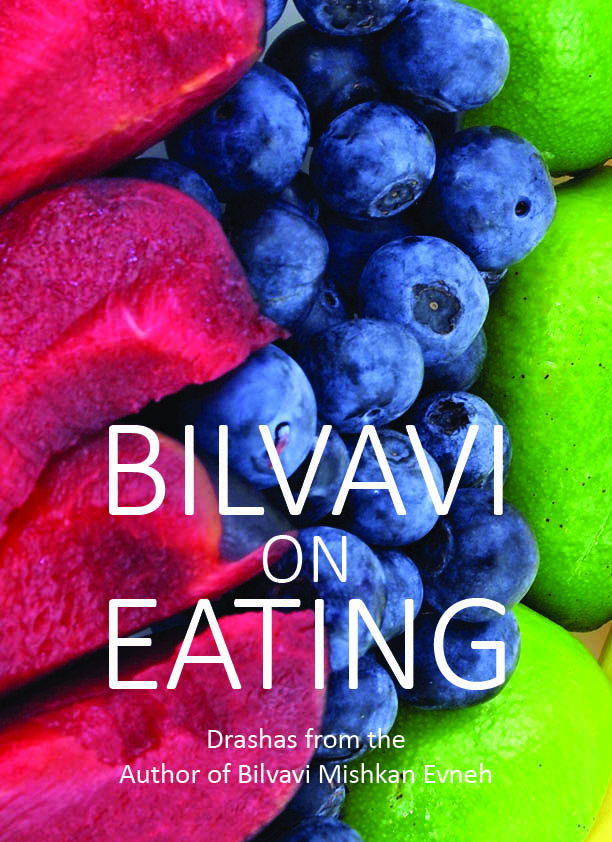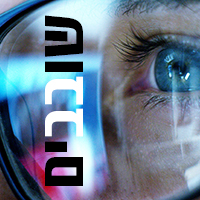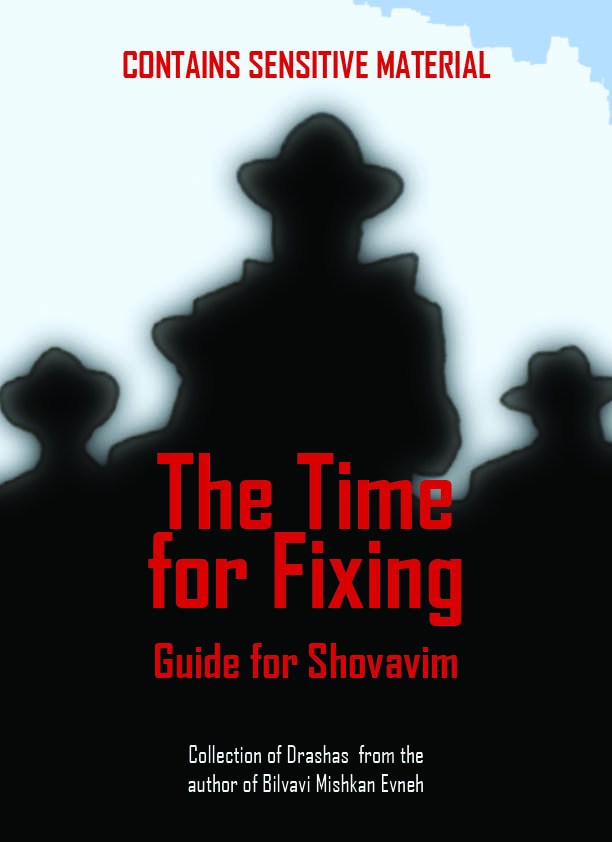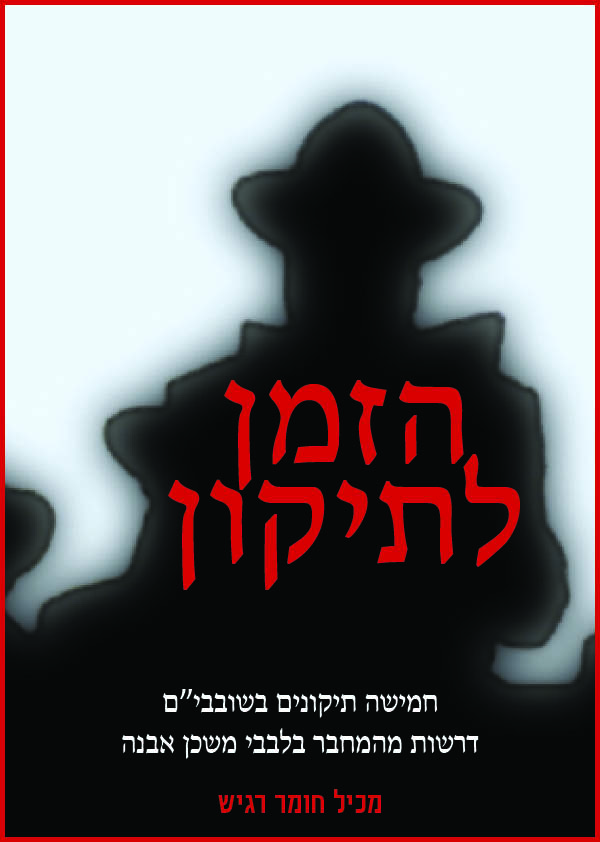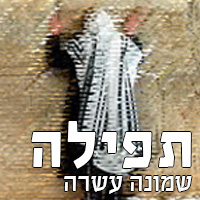- בלבבי ז_003_אמונה ותשובה
003 Emunah behind doing Teschuvah
- בלבבי ז_003_אמונה ותשובה
Bilvavi Part 7 - 003 Emunah behind doing Teschuvah
- 7236 reads
- Printer-friendly version
- שלח דף במייל
בלבבי ז. אמונה ותשובה עמ' ו
Preface: The State That Is Above Free Will
The sefer Pri Tzaddik[1] describes a concept called “ohr olam habah” (the light of the World To Come), in which we will enter a state that is above our bechirah\free will – the state of yediah\knowledge of Hashem (in which there are no room for any questions, and thus there is no possibility of choosing evil, because the truth is so clear).
In The Ego, Beginning To Come Out of the Ego, and Above the Ego
In previous volumes, we have explained that there are three parts to our soul.
The highest part of our soul is Ayin (“nothingness”), which is another term for yediah, as well as a term synonymous with Emunah.
The lowest part of our soul is Yeish – (a sensing of our existence, connoting the human ego, and this is synonymous with bechirah.
There is a middle part of our soul in between the lower and higher layers, and it serves to help us transform our Yeish into our Ayin; that we are able to transform our egotistical existence and instead come to negate our sense of self, attached only with thoughts about Hashem and doing His will.[2]
One Who Is At “Ayin” Doesn’t Need To Do Teshuvah
When a person reaches Ayin, he reaches the perspective of yediah\emunah – he can see how it is indeed Hashem who made everything and continues to make everything. This is essentially the ohr olam habah which the sefer Pri Tzaddik described above.
In this state - Ayin – a person reaches a level in which there is no need for him to do teshuvah (repentance). Just as the mitzvos will go away in the future, so is it possible for a person to reach a state in which his need to do teshuvah disappears (because he is so utterly connected to the sublime – he’s truly there.)
One Who Is Still At “Yeish” Needs to Do Teshuvah
However, when a person is only at the lower level of his existence, Yeish (meaning, he still has not left his ego yet) – he has to carry out teshuvah in all its details, because his the kind of existence he is living obligates him to do teshuvah.
The Middle Level In Between Yeish and Ayin: Teshuvah, But From A Higher Perspective
And what if a person is at the middle layer of his existence – what if he is currently working to reach Ayin? Does he have to do teshuvah?
The avodah for such a person is two-fold. On one hand, he is trying to access Ayin, which is essentially for a person to recognize that nothing is up to me; and because this is so, there should be no need for teshuvah over a sin. This is really because in the state of Ayin, a person is actually above bechirah, and being above bechirah equates into no need for teshuvah - because the truth is clear. It is still called “teshuvah” though because one still has to “return” something here – he has to return his abilities to the Creator in recognizing that all his abilities really come from Him, and not from himself. So there is still a need for teshuvah, but it is a teshuvah which is coming from a deeper perspective – a teshuvah stemming from Emunah.
In doing so, a person transforms his sense of self, Yeish, into Ayin – an existence removed from any trace of ego. He goes above bechirah and is in the state of yediah – he has entered total emunah.
Thus, a person who is working to get to Ayin is at the middle layer of his soul, and thus he has a two-fold job. He needs to do teshuvah, in the simple sense; yet he also needs to do teshuvah from the higher perspective, Emunah: by recognizing that all his abilities come from Hashem.
Teshuvah By Realizing We Can Become Anew Again
There is another way to do Teshuvah from the perspective of Emunah, and it is described in sefer Kedushas Levi[3]: “Each Jew must believe with perfect faith that every moment he receives vitality from the Creator, as Chazal say, that “for every breath, Hashem is praised.” Every second we exist, our life wants to escape us, but Hashem sends us new life every second to keep us alive. Since this is so, teshuvah can help for any person, because when a person does teshuvah, he believes that he is becoming a new creation.”
The Rambam has written that when a person does teshuvah, he is like “a new creation”, and this is utterly true, as we have said. It is really because when a person sins, he ceases to exist, but then Hashem renews him.
[1] Pri Tzadik, Vol. I, kedushas Shabbos, maamar 4.
[2] In other volumes, the author explains (based on the sefarim hakedoshim) that our entire existence is made up of three stages. First we exist, which is Yeish. We must divest ourselves of our ego more and more, which is Ayin, when we feel like nothing. Ultimately, we must transform even our Ayin into our Yeish – our perfected form of existence, which will exist in the future. This will be a sublime kind of existence in which we recognize that our existence is all nothing, because we are completely integrated with Hashem. This is explained in Bilvavi Mishkan Evneh, Volume IX, Chapter Five.
[3] Kedushas Levi, Eichah.
NOTE: Final english versions are only found in the Rav's printed seforim »


